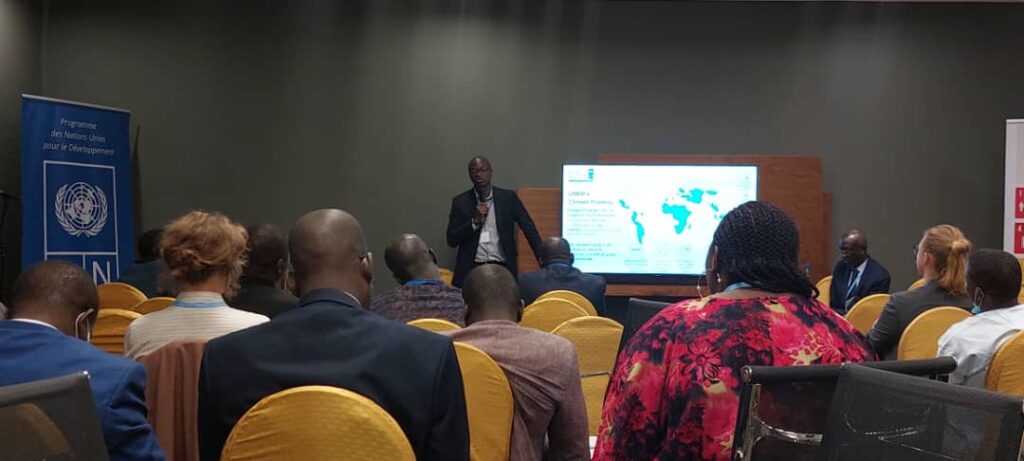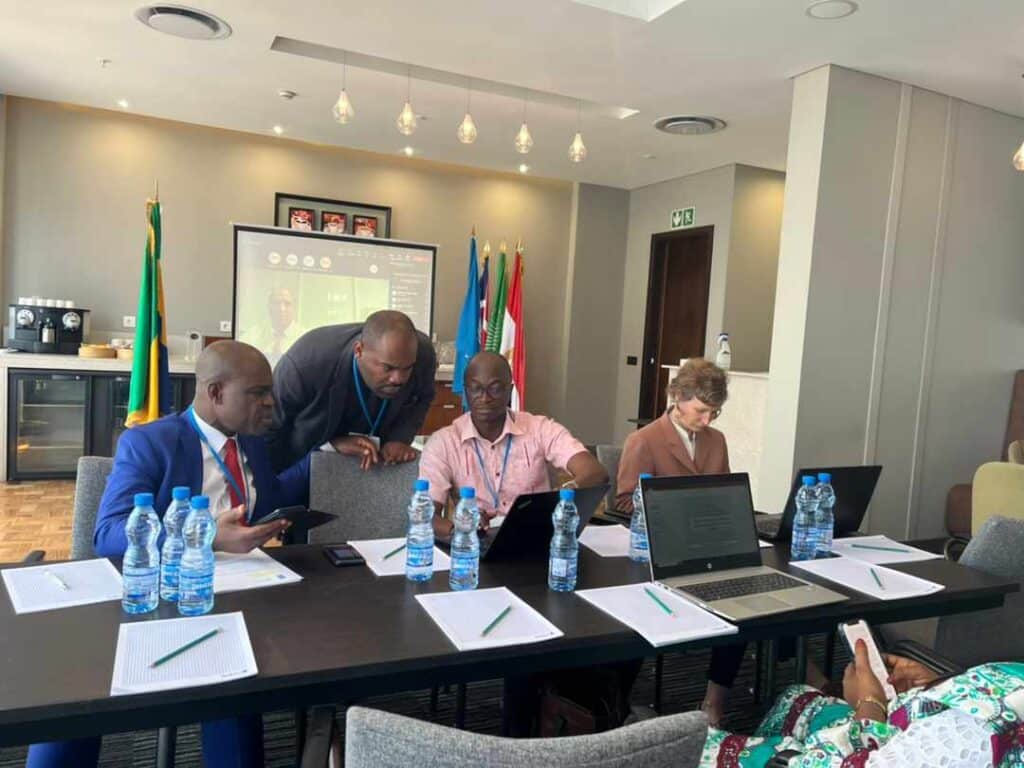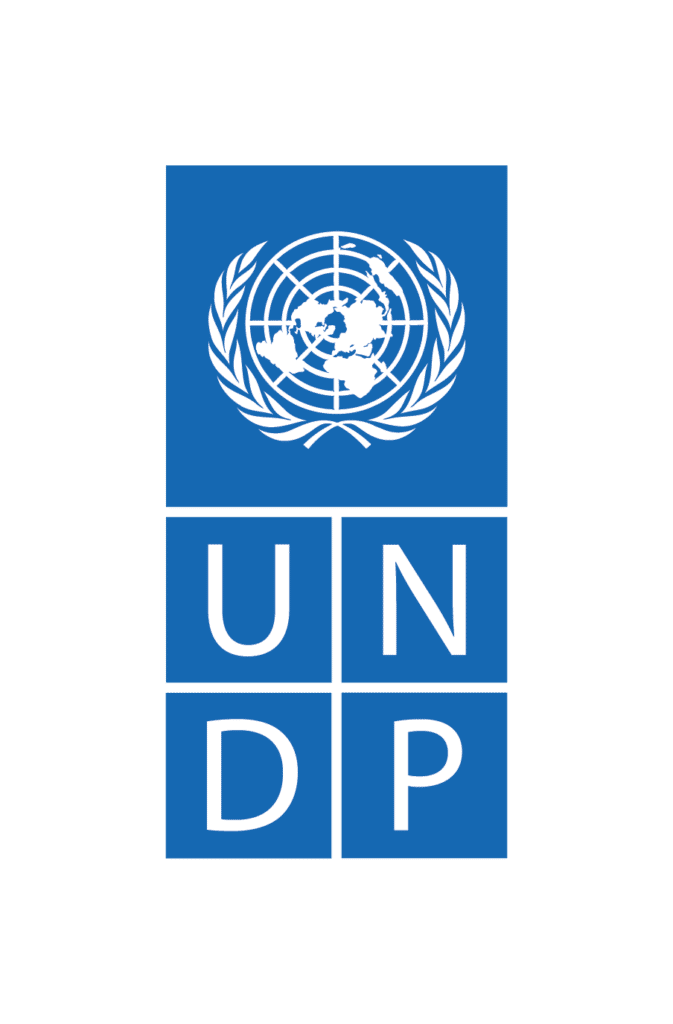
A Q&A with UNDP on International Climate Transparency & Accountability
By Richemond Assie & Eva Huttova
In this interview style blog Richemond Assie, Transparency Advisor, and Eva Huttova, Global Coordinator for GEF Enabling Activities and Capacity Building Initiative for Transparency Portfolio at UNDP’s Climate Promise, dive into the details surrounding COP27 and their organization’s work to support climate transparency and accountability on an international scale.
Q: What is the Enhanced Transparency Framework (ETF)?
Richemond: ETF stands for “enhanced transparency framework.” The ETF refers to the rules that countries agreed to follow under the Paris Agreement to build trust and confidence that each Party is contributing to the goal of keeping global warming to well below 2°C. Countries first put forward their national climate pledges, called Nationally Determined Contributions (NDCs), and then have to meet the targets they set in these pledges. Collecting data and reporting it accurately is essential for the agreement to work.
The ETF is an essential part of the NDC cycle and ambition mechanism. Tracking and reporting on the progress and challenges of meeting climate targets and implementing climate action plans gives countries the necessary information to strengthen their ambition in the future.
Q: How does the ETF compare to the current measurement and reporting systems in use, and how will it be implemented across Parties?
Eva: The current Measurement, Reporting, and Verification (MRV) under the Convention is bifurcated, with a distinction between industrialized countries and economies in transition, known as Annex I countries and developing nations, who had higher requirement standards to report and review on than non-Annex I countries.
However, under the new ETF, a single track reporting process will now be applicable to all countries equally. That means from 2024 onwards, all nations are expected to pass through the same biennial cycles of reporting and review. The option to deviate from these requirements and to report to a lesser extent, is given to developing countries with limited capacities, if they can provide an explanation and intended timeframe for improvement related to the identified capacity constraints.
It is widely recognized that developing countries will need support in this process. That’s one of the areas where our support as UNDP comes in. UNDP has been a key partner supporting developing nations to strengthen their existing reporting and review processes to the UNFCCC. Now, UNDP is continuing this support as it helps countries transition towards the new ETF reporting and review requirements with funding from the Global Environment Facility, or GEF.

Q: President Abdel Fattah El-Sisi stated that “Egypt will spare no effort to ensure that COP27 becomes the moment when the world moved from negotiation to implementation and where words were translated to actions.” In your opinion, how will COP27 differ from previous conferences and close this gap between commitment and action?
Richemond: The Egyptian presidency has structured the COP27 action agenda around implementation, with the aim of mobilizing collective efforts for ambitious emission reductions from different sectors, and enabling appropriate funding flows and delivering action on time. When structuring the discussions for different thematic days, the role of youth, civil society, and diverse stakeholders were taken into account to ensure their full and effective engagement.
Q: Some people believe that global climate conferences are not effective climate change mitigation strategies, for atmospheric CO2 levels have continued to rise. Are these conferences impactful and if so, what improvements to the climate crisis have been made as a result?
Eva: UN global climate conferences serve to bring together the international community around our common climate crisis, including world leaders, civil societies, and the private sector. The conferences raise awareness to the challenges but also to the opportunities embedded within climate action that contribute to and enhance sustainable development at the global scale. Additionally, due to the implementation of the UNFCCC, Kyoto Protocol, and Paris Agreement, it has been possible to create a global environmental intelligence structure that not only identified the problem, but also created frameworks to measure the change.
Q: What can you tell us about UNDP’s Climate Promise?

Richemond: The Climate Promise is UNDP’s response to the climate crisis: it’s the largest global offer of support on national climate pledges under the Paris Agreement. In collaboration with over 35 partners, this initiative supports over 120 countries and territories to improve the quality and increase the ambition their national climate pledges.
Eva: In the area of MRV/Transparency work, we have supported over 81 countries to report concrete results on climate data and transparency, building on longer-term efforts to establish systems to track, monitor, and report on climate action.
With our support, as of July 2022, 100 Climate Promise countries representing 84 percent of developing countries submitted enhanced NDCs. A vast majority of these countries chose to raise ambition of their mitigation and/or adaptation goals while also ensuring higher levels of inclusiveness and broad stakeholder engagement including gender, youth and private sector. They did this despite the challenges posed by the COVID-19 global pandemic, political turmoil, and other social and economic disruptions.
In the midst of an increasingly volatile and changing world, we think COP27 will be the moment to build on the momentum and to test whether we are collectively able to demonstrate significant progress on NDC implementation.

To learn more about UNDP and their international work, visit their website at https://www.undp.org/.
